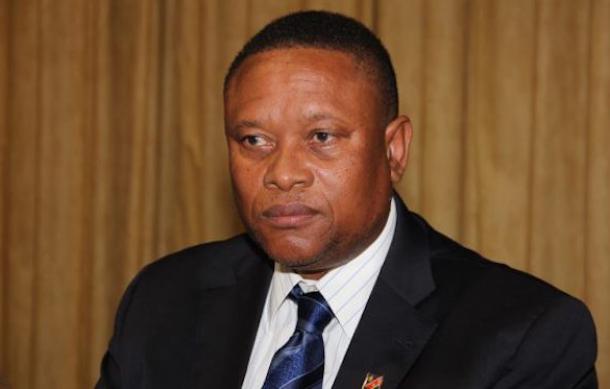
Former Fisheries Minister Bernhardt Esau points fingers at key figures in an explosive testimony.
In a gripping turn of events at the High Court, former Fisheries Minister Bernhardt Esau took to the stand during his bail application to reveal shocking details of his alleged involvement in the notorious "Fishrot" scandal.
Esau made a jaw-dropping revelation, claiming that his name was falsely implicated by his co-accused in the exposed web of corruption that spans multiple individuals and reaches the high echelons of power.
The "Fishrot" scandal, a multimillion-dollar fishing scheme that rocked Namibia, came to light in recent years, tarnishing the reputation of key political figures and casting a dark cloud over the country's fishing industry.
However, today's testimony by Esau has opened a Pandora's box, implicating influential figures as key orchestrators of this widespread corruption.
Esau wasted no time in naming former Justice Minister Sacky Shanghala, his son-in-law Tamson Hatuikulipi, and his cousin James Hatuikulipi as the masterminds behind the exploitation of his name in the joint venture documents of Namgomar, both in Angola and Namibia. According to Esau's testimony, the trio allegedly used his identity to advance their corrupt agenda within the fishing industry, deceiving both national and international entities.
Under relentless questioning from State Prosecutor Cliff Litubezi, Esau revealed that he had not met the Angolan counterparts implicated in the same scandal; he only read about their names in emails and documents.
During the whole proceeding, Esau maintained his innocence, saying he was not involved in the allocation of fishing quotas to Samherji or Namgomar as those functions were delegated to the Permanent Secretary of the Ministry.
"I cannot be a referee and a player at the same time," said Essau.
The state has indicated that it will call former Samherji employee Johannes Stephanson to testify as a state witness.
Litubezi told the court that this revelation further solidifies the state's case, hinting at the potential unravelling of the intricate network of collusion and deceit that plagued Namibia's fishing sector.
Some legal minds close to the case say the implications of this testimony are far-reaching, as it not only challenges the alleged guilt of the accused but also raises questions about the depth of corruption within Namibia's political landscape.





